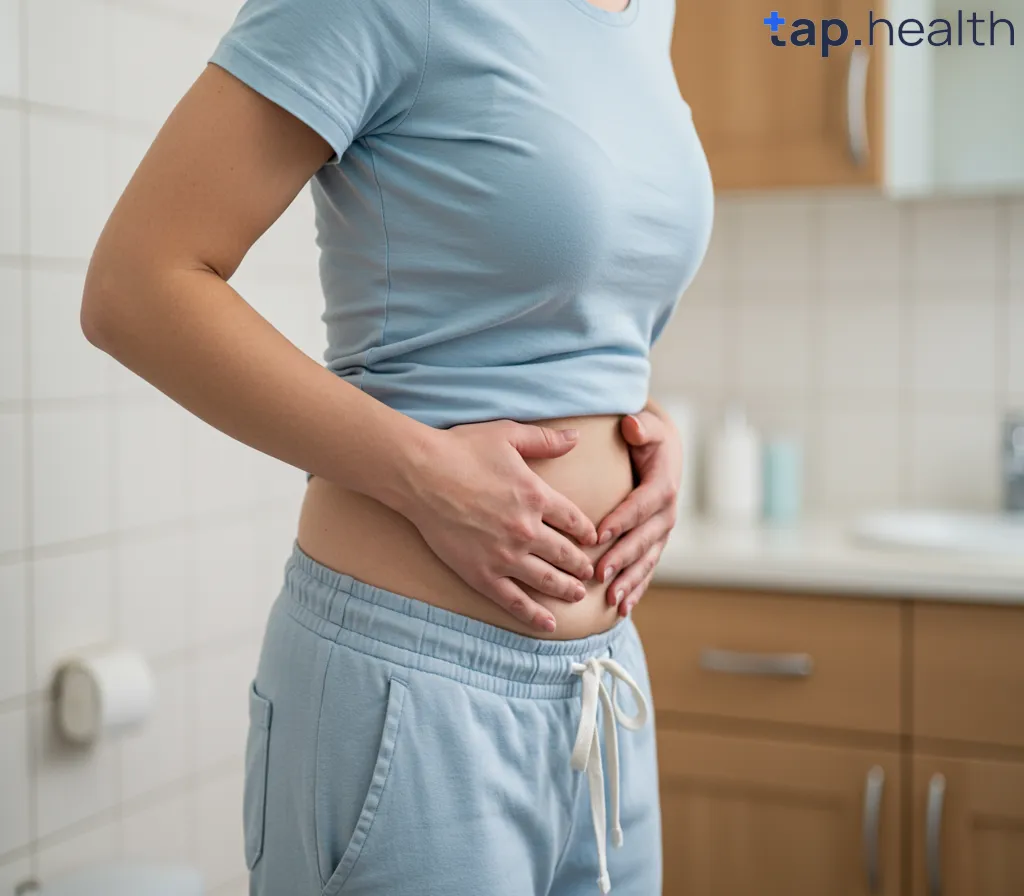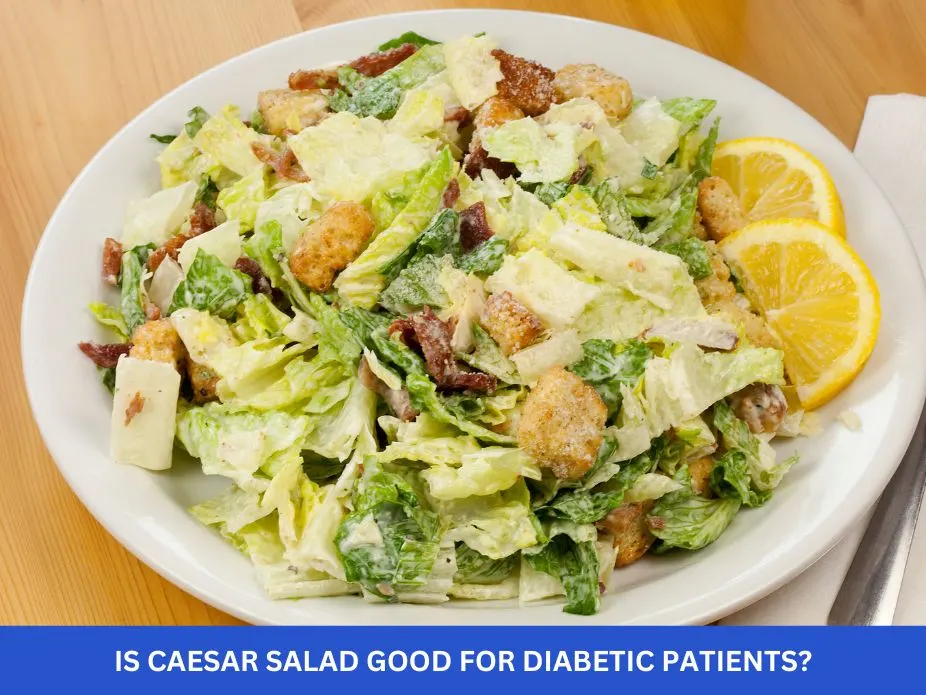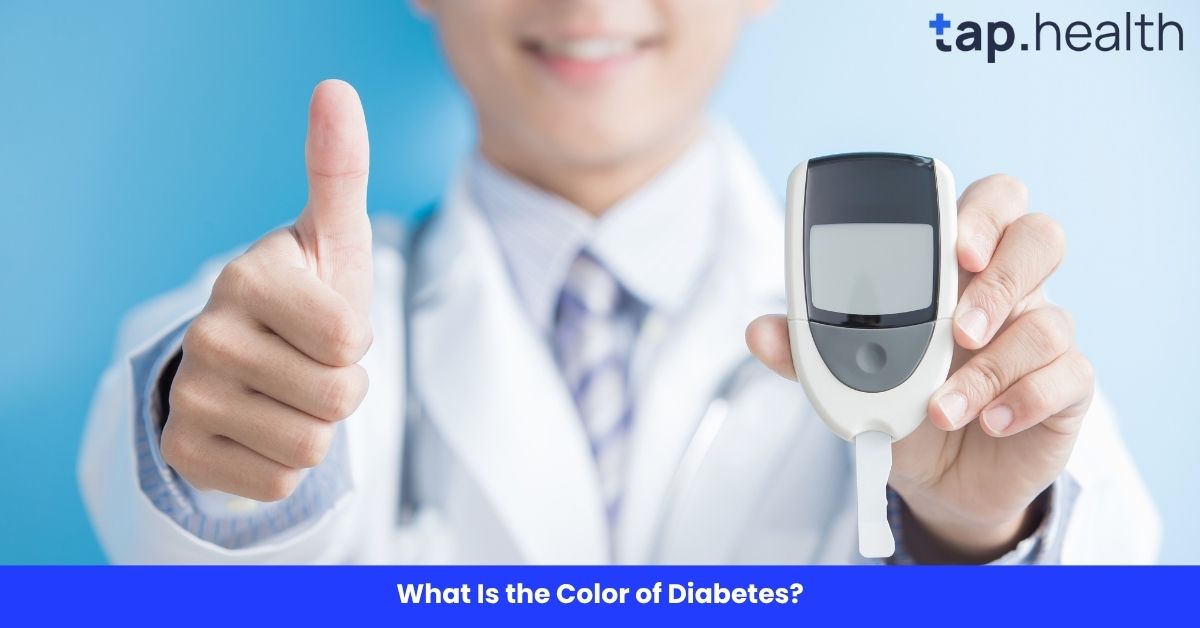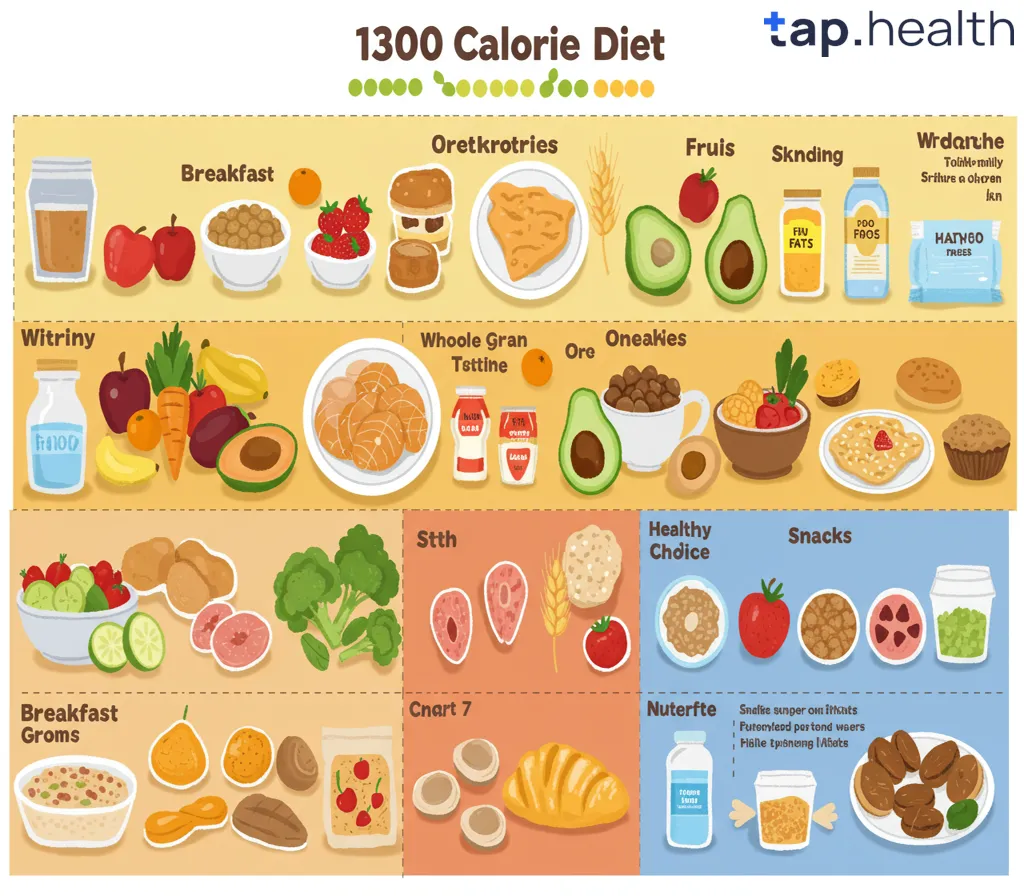If you’ve ever eaten a meal and suddenly felt like your stomach was about to burst, you’re not alone. Bloating is one of the most common digestive complaints—millions of people deal with it every day.
You might feel:
- A tight, swollen belly
- Gas and burping
- Cramps or discomfort
- That “full-to-the-point-of-pain” feeling
And while bloating is usually harmless, it can be annoying, embarrassing, and sometimes painful.
Many people ask:
“What vitamin is good for bloating?”
The truth? There isn’t just one magic vitamin. But several vitamins, minerals, and nutrients can help reduce bloating by improving digestion, reducing water retention, and calming your gut.
In this guide, we’ll break down everything you need to know in simple, easy-to-understand language—no confusing medical terms. You’ll learn:
- Which vitamins and minerals actually help with bloating
- What foods to eat (and avoid)
- Lifestyle tips to feel better fast
- Common myths about bloating
- And answers to all the top questions people search
We’ve researched this from trusted sources like the Mayo Clinic, Cleveland Clinic, Harvard Health, National Institutes of Health (NIH), and the Academy of Nutrition and Dietetics to make sure it’s accurate and reliable.
Let’s dive in.
What Causes Bloating?
Before we talk about vitamins, let’s understand why bloating happens.
Bloating is the feeling of fullness or swelling in your belly. It’s not always about gas—sometimes it’s water retention, slow digestion, or even stress.
Common Causes of Bloating:
1. Gas Buildup
Your gut naturally produces gas as it breaks down food. Too much gas = bloating, burping, and flatulence.
Common gas-producing foods: beans, broccoli, cabbage, onions, carbonated drinks.
2. Swallowing Air
Eating too fast, chewing gum, or drinking through a straw can make you swallow air—leading to bloating.
3. Constipation
When stool sits in your colon, it can cause pressure and swelling in your belly.
4. Water Retention
Hormonal changes (like during your period), high salt intake, or certain medications can make your body hold onto water—making you feel puffy.
5. Food Intolerances
Some people can’t digest certain foods, like:
- Lactose (in dairy)
- Fructose (in fruits and sweeteners)
- FODMAPs (fermentable carbs in some foods)
This leads to gas, bloating, and discomfort.
6. Irritable Bowel Syndrome (IBS)
IBS is a common gut disorder that causes bloating, cramps, diarrhea, or constipation.
7. Hormonal Changes
Many women feel bloated before or during their period due to fluctuating hormones.
8. Poor Digestion
As we age or get stressed, our bodies may produce less stomach acid or digestive enzymes—making it harder to break down food.
So, What Vitamin Is Good for Bloating?
Now, the big question: What vitamin is good for bloating?
The answer isn’t just one vitamin—it’s a team of vitamins, minerals, and nutrients that help your digestive system work smoothly.
Here are the top 6 that science shows can help reduce bloating.
1. Vitamin B6 – The Water-Balance Vitamin
Why B6 Helps with Bloating
Vitamin B6 is one of the most effective vitamins for bloating—especially hormonal bloating.
It helps your body balance fluids by reducing water retention. This is why many women take B6 to feel less puffy before their period.
Studies show that vitamin B6 supplements can reduce PMS symptoms, including bloating, breast tenderness, and mood swings.
How Much B6 Do You Need?
- Adults: 1.3 mg per day
- Women over 50: 1.5 mg
- Pregnant women: 1.9 mg
- Breastfeeding women: 2.0 mg
Upper limit: Don’t take more than 100 mg per day long-term—too much can cause nerve damage.
Best Food Sources
- Chickpeas (garbanzo beans)
- Tuna and salmon
- Chicken breast
- Potatoes (with skin)
- Bananas
- Spinach
- Fortified cereals
Tip: If you’re bloated before your period, a low-dose B6 supplement (25–50 mg) may help. Talk to your doctor first.
2. Magnesium – The Natural De-Bloater
How Magnesium Reduces Bloating
Magnesium is a mineral that plays a huge role in digestion and fluid balance.
It helps in several ways:
- Relaxes digestive muscles – helps food move smoothly
- Reduces water retention – acts as a mild diuretic
- Relieves constipation – draws water into the colon
- Calms the nervous system – stress worsens bloating
Low magnesium is linked to constipation, cramps, and bloating.
How Much Magnesium Do You Need?
- Men: 400–420 mg per day
- Women: 310–320 mg per day
- Pregnant women: 350–360 mg
Best Food Sources
- Pumpkin seeds
- Almonds and cashews
- Spinach and Swiss chard
- Black beans
- Avocados
- Dark chocolate (70%+ cocoa)
- Whole grains (oats, brown rice)
Supplement tip: Magnesium citrate or glycinate are best for digestion. Avoid oxide—it’s poorly absorbed.
3. Vitamin D – The Gut-Immune Regulator
Why Vitamin D Matters for Bloating
You might not think of vitamin D as a “digestive vitamin,” but it plays a key role in gut health.
Vitamin D:
- Supports a healthy gut microbiome
- Reduces inflammation in the digestive tract
- Helps regulate the immune system (important for IBS and IBD)
Low vitamin D is linked to IBS, bloating, and constipation.
How Much Vitamin D Do You Need?
- Adults (19–70): 600–800 IU (15–20 mcg) per day
- Many experts recommend 1,000–2,000 IU daily, especially in winter
Best Sources
- Sunlight (10–30 minutes midday sun, several times a week)
- Fatty fish (salmon, mackerel)
- Egg yolks
- Fortified milk and cereals
- Supplements (most people need these)
Tip: Ask your doctor for a blood test. Many people are low in vitamin D without knowing it.
4. Probiotics – Not a Vitamin, But a Bloating Fighter
Probiotics aren’t vitamins—they’re good bacteria that live in your gut. But they’re so important for bloating that they deserve a spot on this list.
Your gut has trillions of bacteria. When the balance is off (too many bad bacteria), it can cause gas, bloating, and digestive chaos.
Probiotics help:
- Restore healthy gut bacteria
- Reduce gas and bloating (especially in IBS)
- Improve digestion
- Strengthen the gut lining
Best Strains for Bloating
- Lactobacillus acidophilus
- Bifidobacterium lactis
- Saccharomyces boulardii (a beneficial yeast)
Best Food Sources
- Yogurt (with live cultures)
- Kefir
- Sauerkraut
- Kimchi
- Miso
- Tempeh
- Kombucha
Supplement tip: Look for a probiotic with 10–50 billion CFUs and multiple strains. Take it daily for at least 4 weeks to see results.
5. Digestive Enzymes – The Food Breakers
Again, not a vitamin—but essential for reducing bloating after meals.
Digestive enzymes are proteins that help break down food into smaller parts so your body can absorb them.
As we age or get stressed, we may make fewer enzymes—leading to undigested food fermenting in the gut = gas and bloating.
Common Enzymes That Help Bloating
| Lactase | Lactose (milk sugar) | Dairy bloating |
| Alpha-galactosidase | Beans, veggies | Gas from fiber |
| Amylase | Carbs | Starchy food bloating |
| Lipase | Fats | Greasy meal discomfort |
| Protease | Proteins | Meat-heavy meals |
Popular supplement: Beano (contains alpha-galactosidase) helps prevent gas from beans and veggies.
Tip: Take enzymes right before eating to get the best results.
6. Calcium – The Muscle Regulator
How Calcium Affects Bloating
Calcium isn’t just for bones—it also helps your muscles contract, including the muscles in your digestive tract.
If your gut muscles don’t squeeze properly, food can move too slowly—leading to bloating and constipation.
But too much calcium (especially from supplements) can cause constipation and gas, so balance is key.
How Much Calcium Do You Need?
- Adults (19–50): 1,000 mg per day
- Women over 50 / Men over 70: 1,200 mg
Best Food Sources
- Milk, yogurt, cheese
- Leafy greens (kale, bok choy)
- Fortified plant milks
- Tofu (with calcium sulfate)
- Sardines and salmon (with bones)
Tip: Spread calcium intake throughout the day—your body can only absorb about 500 mg at once.
Other Nutrients That Help with Bloating
Besides vitamins, these nutrients play a big role in reducing bloating.
Potassium – The Sodium Counterbalance
Potassium helps your body get rid of excess sodium and water—reducing puffiness and bloating.
Best sources: Bananas, oranges, potatoes, spinach, avocados, beans.
Fiber – The Double-Edged Sword
Fiber is great for digestion, but too much too fast can cause gas and bloating.
Soluble fiber (forms a gel) = less gas (oats, apples, carrots)
Insoluble fiber (adds bulk) = can cause gas if not used to it (wheat bran, broccoli)
Tip: Increase fiber slowly and drink plenty of water.
Best Foods to Eat to Reduce Bloating
Want to eat your way to a flatter belly? Here’s what to eat.
Bloating-Friendly Foods
| Cucumber | 95% water—natural diuretic |
| Celery | High water, low calorie, helps flush fluids |
| Watermelon | Hydrating and rich in potassium |
| Pineapple | Contains bromelain—an enzyme that digests protein |
| Ginger | Calms the gut, reduces gas and nausea |
| Peppermint | Relaxes digestive muscles (try tea) |
| Yogurt (with probiotics) | Adds good bacteria |
| Oats | Soluble fiber helps digestion |
| Fennel | Natural anti-gas herb—chew seeds after meals |
| Herbal teas | Peppermint, ginger, chamomile soothe the gut |
Foods That Cause Bloating (Avoid These)
Some foods are notorious for causing gas and bloating.
Common Bloating Triggers
- Beans and lentils – high in fiber and complex sugars
- Cruciferous veggies – broccoli, cauliflower, cabbage (gas-producing)
- Onions and garlic – contain FODMAPs
- Carbonated drinks – add gas to your gut
- Chewing gum – makes you swallow air
- Dairy (if lactose intolerant) – causes gas and cramps
- Wheat and rye – contain gluten and FODMAPs
- Artificial sweeteners – sorbitol, mannitol (in sugar-free gum/candy)
- Fried and fatty foods – slow digestion
- Alcohol and caffeine – irritate the gut
Tip: Keep a food diary to find your personal triggers.
Lifestyle Tips to Reduce Bloating
Vitamins help, but your habits matter too.
1. Eat Slowly
Chewing thoroughly and eating slowly reduces swallowed air and helps digestion.
2. Drink More Water
Dehydration causes constipation and water retention. Aim for 6–8 glasses a day.
3. Move Your Body
Walking after meals helps food move through your gut and reduces bloating.
4. Manage Stress
Stress messes with digestion. Try deep breathing, yoga, or meditation.
5. Don’t Skip Meals
Skipping meals can slow digestion and lead to overeating later—both cause bloating.
6. Try Abdominal Massage
Gentle clockwise massage can help move gas and stool.
7. Wear Loose Clothes
Tight waistbands press on your stomach and make bloating worse.
Can Vitamins Cause Bloating?
Yes—some vitamins and supplements can actually cause bloating.
Common Offenders:
- Iron supplements – cause constipation and gas
- Calcium supplements – especially carbonate form
- High-dose vitamin C – acts as a laxative in large amounts
- Multivitamins with fillers – some contain lactose or artificial ingredients
Tips to avoid supplement bloating:
- Take vitamins with food
- Choose gentle forms (e.g., magnesium glycinate, iron bisglycinate)
- Start with a low dose
- Drink plenty of water
Bloating and Hormones: Why Women Get It More
Women are more likely to experience bloating—especially around their period.
Why?
- Estrogen and progesterone affect fluid balance and gut movement
- Progesterone slows digestion before your period
- Water retention peaks during PMS
What helps:
- Vitamin B6
- Magnesium
- Potassium-rich foods
- Reducing salt intake
- Light exercise
Note: If bloating is severe or new, see a doctor. It could be endometriosis, PCOS, or ovarian cysts.
When to See a Doctor for Bloating
Most bloating is normal. But see a doctor if you have:
- Bloating that lasts more than a few weeks
- Unintentional weight loss
- Blood in stool
- Severe pain
- Vomiting
- Change in bowel habits (diarrhea or constipation)
- Bloating that wakes you up at night
These could be signs of:
- Irritable Bowel Syndrome (IBS)
- Inflammatory Bowel Disease (IBD)
- Celiac disease
- Food intolerances
- Ovarian or colon cancer (rare, but possible)
Don’t ignore persistent symptoms.
Myths About Bloating and Vitamins
Let’s bust some common myths.
Myth: Detox teas cure bloating
Truth: Most detox teas are just laxatives. They may give quick relief but don’t fix the cause—and can cause dehydration.
Myth: You need to “cleanse” your colon
Truth: Your body cleanses itself. Colon cleanses are unnecessary and risky.
Myth: All fiber causes bloating
Truth: Soluble fiber (like in oats and bananas) can actually reduce bloating. Just increase it slowly.
Myth: Probiotics work instantly
Truth: It can take 2–4 weeks to notice a difference. Be patient.
Myth: Gluten is the only cause of bloating
Truth: While celiac disease and gluten sensitivity exist, many other foods and factors cause bloating.
Can Supplements Help with Bloating?
Yes—if used the right way.
Best Supplements for Bloating:
| Vitamin B6 | Hormonal bloating | 25–50 mg/day |
| Magnesium | Constipation, water retention | 200–400 mg/day |
| Probiotics | IBS, gut imbalance | 10–50 billion CFUs |
| Digestive Enzymes | Gas after meals | Take before eating |
| Peppermint Oil | IBS-related bloating | 0.2–0.4 mL enteric-coated capsules |
Warning: Don’t self-diagnose. Talk to your doctor before starting any supplement.
Frequently Asked Questions (FAQ) on What vitamin is good for bloating?
Q1: What vitamin is good for bloating?
The best vitamins for bloating are vitamin B6, magnesium, vitamin D, and probiotics. They help reduce water retention, improve digestion, and balance gut bacteria.
Q2: Does vitamin B6 help with bloating?
Yes. Vitamin B6 helps reduce water retention and hormonal bloating, especially before your period. Studies show it can relieve PMS-related bloating.
Q3: Can magnesium cause bloating?
Magnesium itself doesn’t cause bloating—but low magnesium can lead to constipation, which does. Some forms (like oxide) may cause gas. Stick to magnesium citrate or glycinate.
Q4: Is vitamin D good for bloating?
Yes. Low vitamin D is linked to IBS and gut inflammation. Getting enough vitamin D supports a healthy gut and may reduce bloating.
Q5: Can probiotics help with bloating?
Yes. Probiotics can reduce bloating, especially in people with IBS. Look for strains like Lactobacillus and Bifidobacterium. It may take a few weeks to work.
Q6: What helps bloating instantly?
Quick fixes:
- Walk for 10–15 minutes
- Drink peppermint or ginger tea
- Apply a warm compress
- Try gentle yoga poses
- Sip water with lemon
Q7: Why am I bloated all the time?
Chronic bloating could be due to:
- Food intolerances (lactose, gluten)
- IBS
- Constipation
- Hormonal issues
- Poor digestion
- Stress
See a doctor if it doesn’t go away.
Q8: Does drinking water help bloating?
Yes. Drinking water helps flush out excess sodium and prevents constipation. Dehydration makes bloating worse.
Q9: Can vitamins make you bloated?
Yes. Iron, calcium, and high-dose vitamin C supplements can cause gas, constipation, or bloating. Take them with food and choose gentle forms.
Q10: What foods reduce bloating?
Best foods: cucumber, watermelon, pineapple, ginger, fennel, yogurt, oats, herbal teas.
Q11: Is apple cider vinegar good for bloating?
No strong evidence. Some people say it helps digestion, but it can irritate the stomach. Not recommended for everyone.
Q12: Can stress cause bloating?
Yes. Stress affects your gut-brain connection and can slow digestion, increase gas, and worsen IBS symptoms.
Q13: How can I debloat fast?
- Drink water
- Eat potassium-rich foods
- Go for a walk
- Avoid salt and carbonation
- Try a probiotic
Q14: Does fiber cause bloating?
It can—especially if you add too much too fast. Increase fiber slowly and drink water. Soluble fiber is gentler than insoluble.
Q15: When is bloating serious?
See a doctor if bloating is:
- Constant
- Painful
- Paired with weight loss, blood in stool, or vomiting
It could be a sign of a medical condition.
Final Tips: How to Stop Bloating for Good
Bloating doesn’t have to be a daily struggle. Try these simple steps:
✅ Eat slowly and chew well
✅ Drink 6–8 glasses of water daily
✅ Include B6 and magnesium-rich foods
✅ Try probiotics or digestive enzymes if needed
✅ Move your body after meals
✅ Manage stress
✅ Avoid trigger foods
✅ See a doctor if bloating won’t go away
Remember: Everyone gets bloated sometimes. But if it’s frequent or painful, it’s worth looking into.
Your gut is smart. Treat it well—and it will thank you with less bloat and more comfort.



